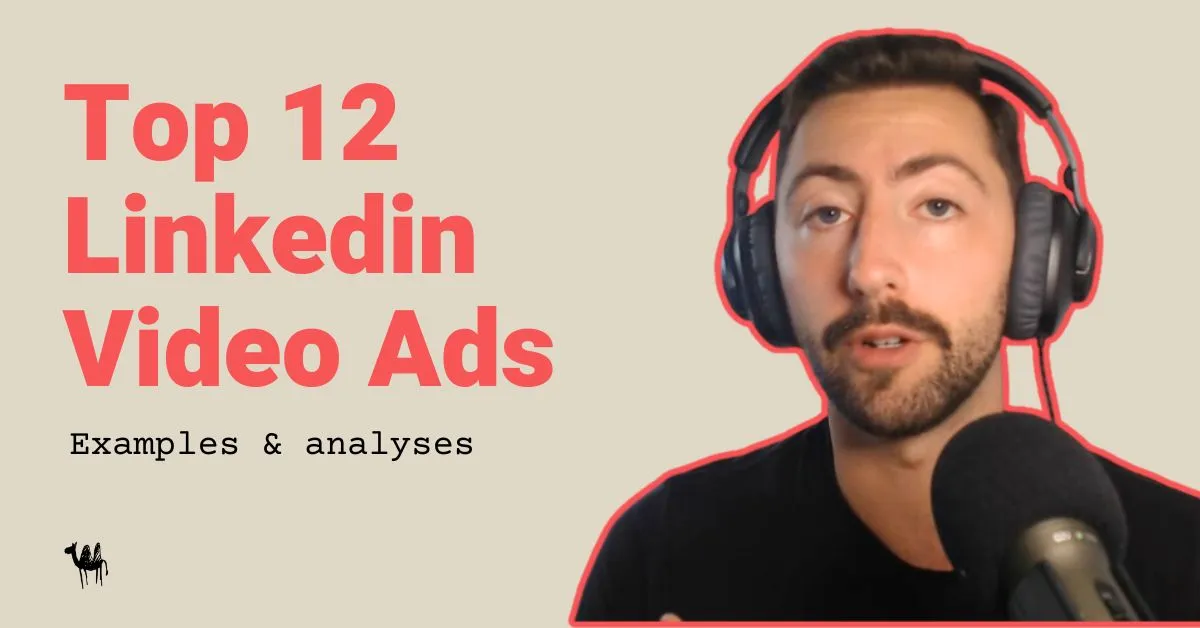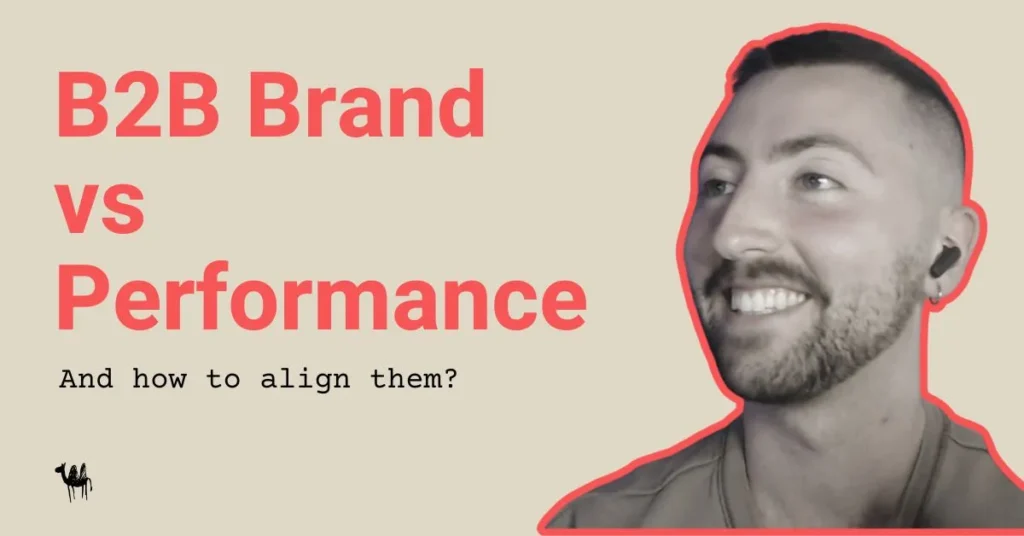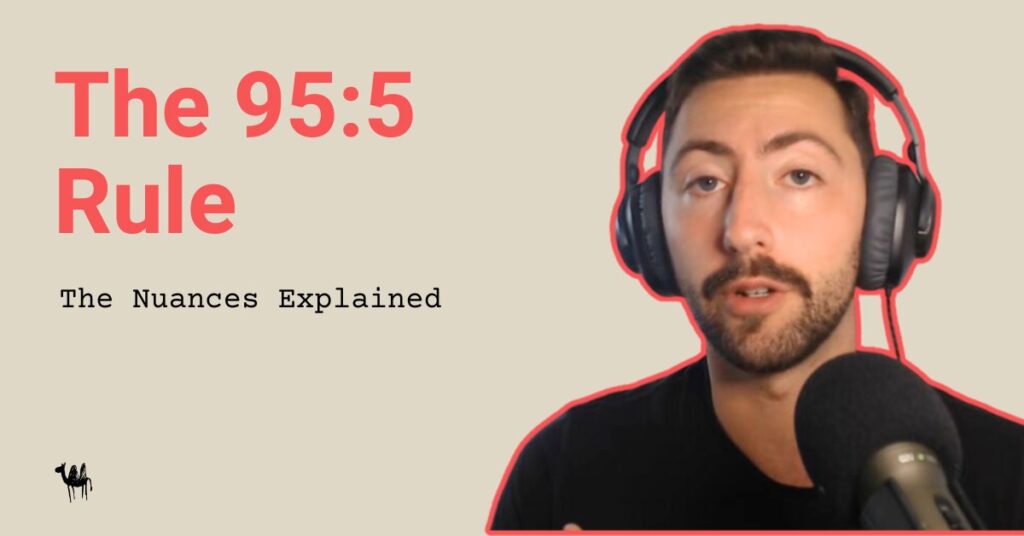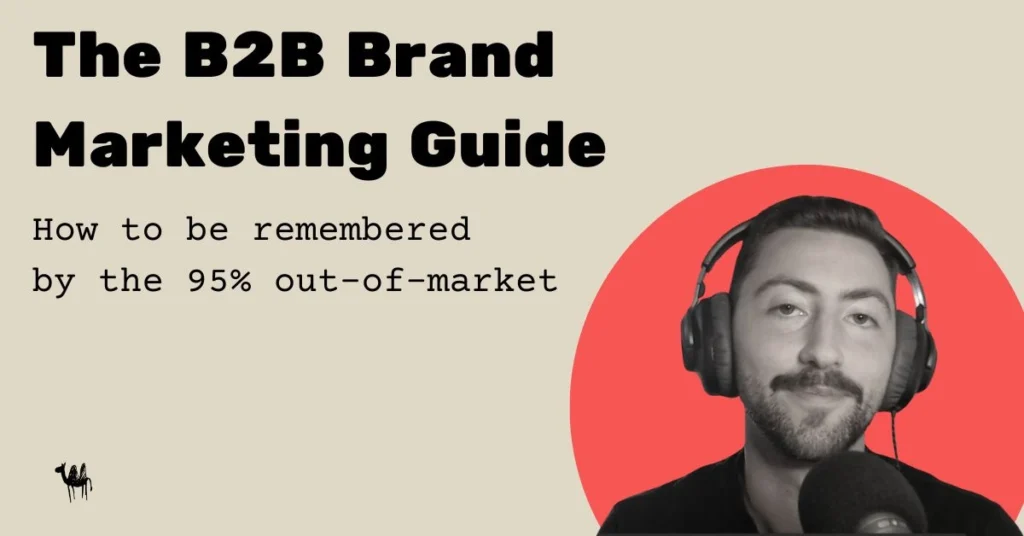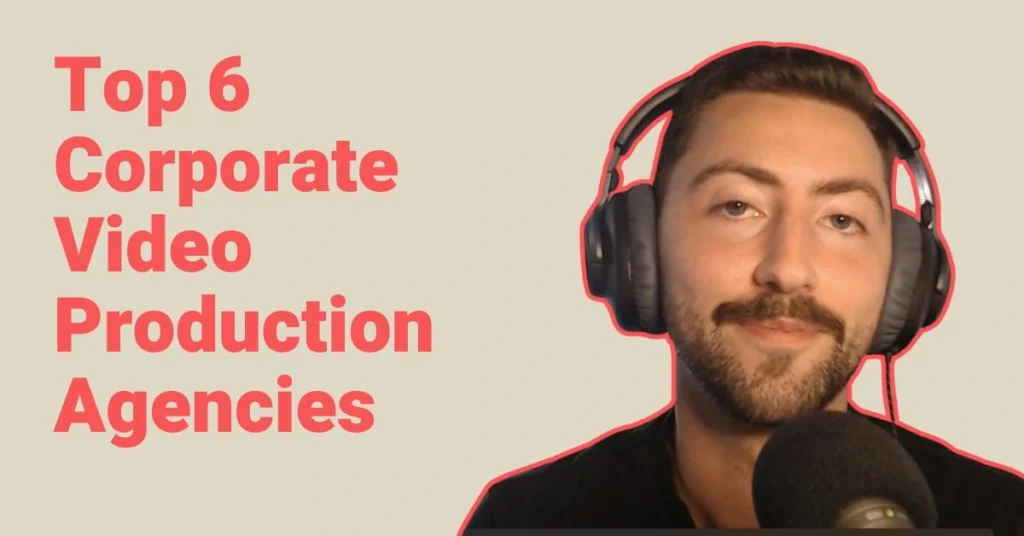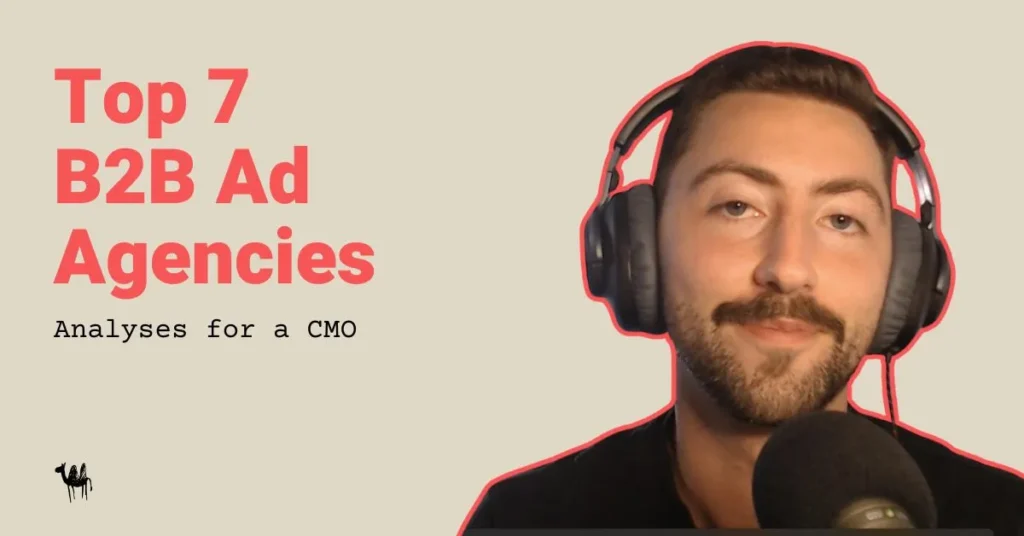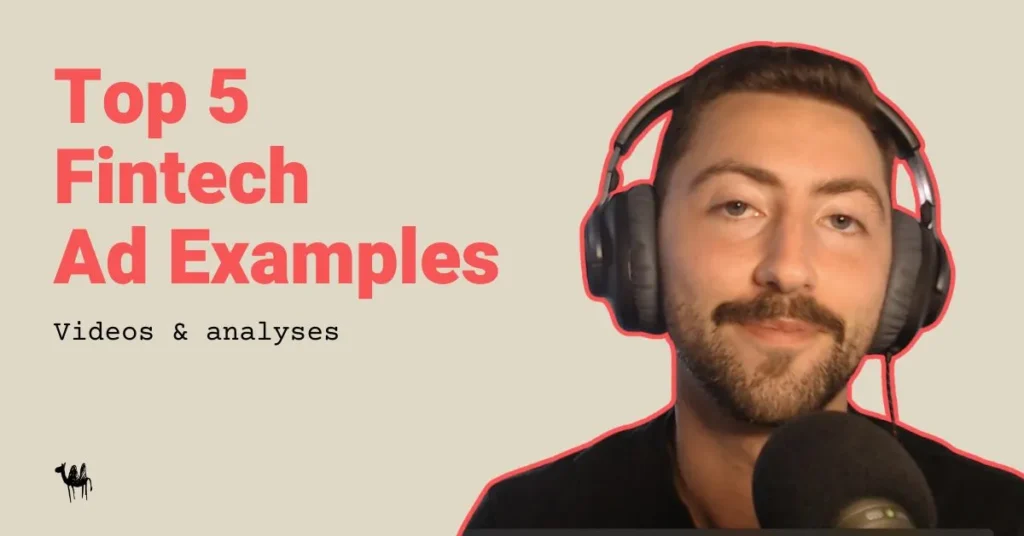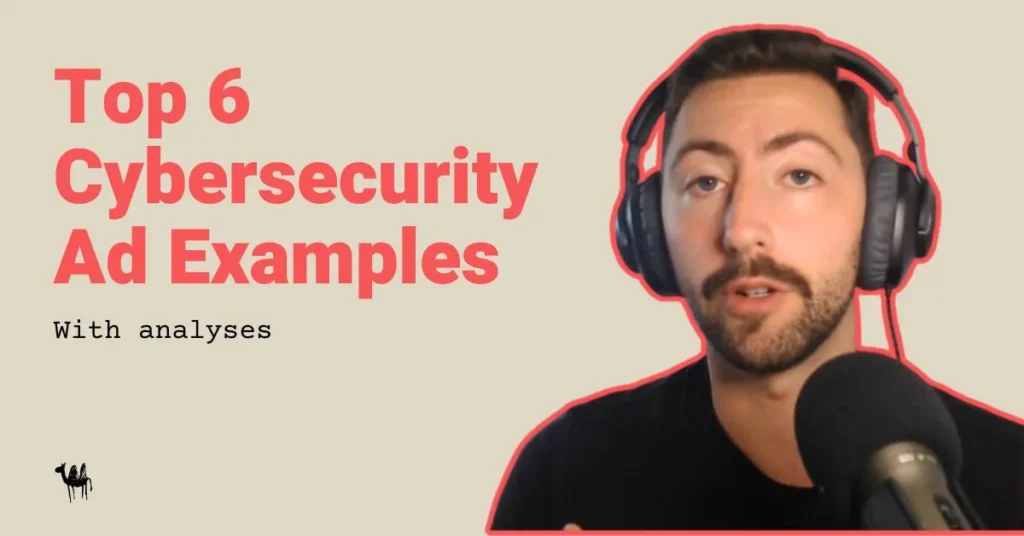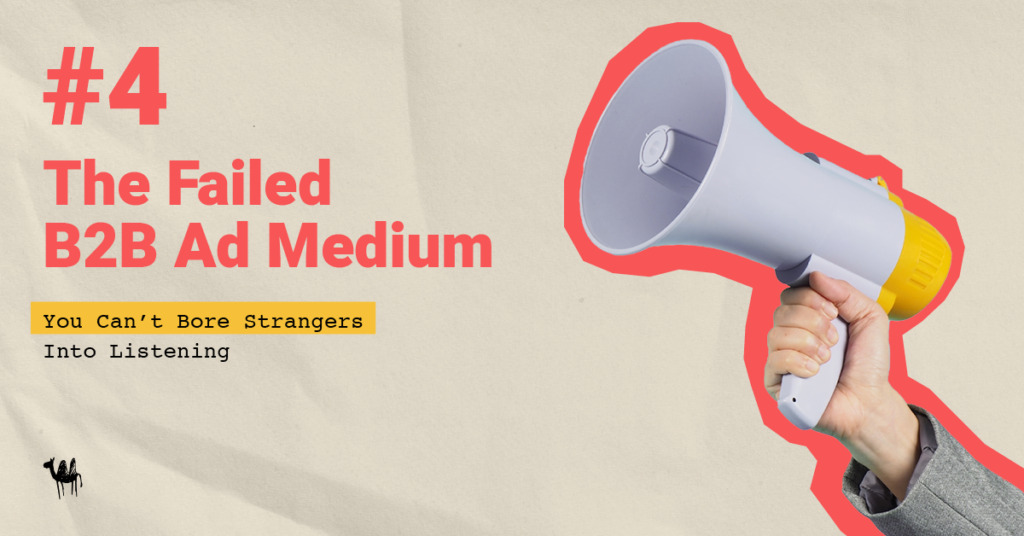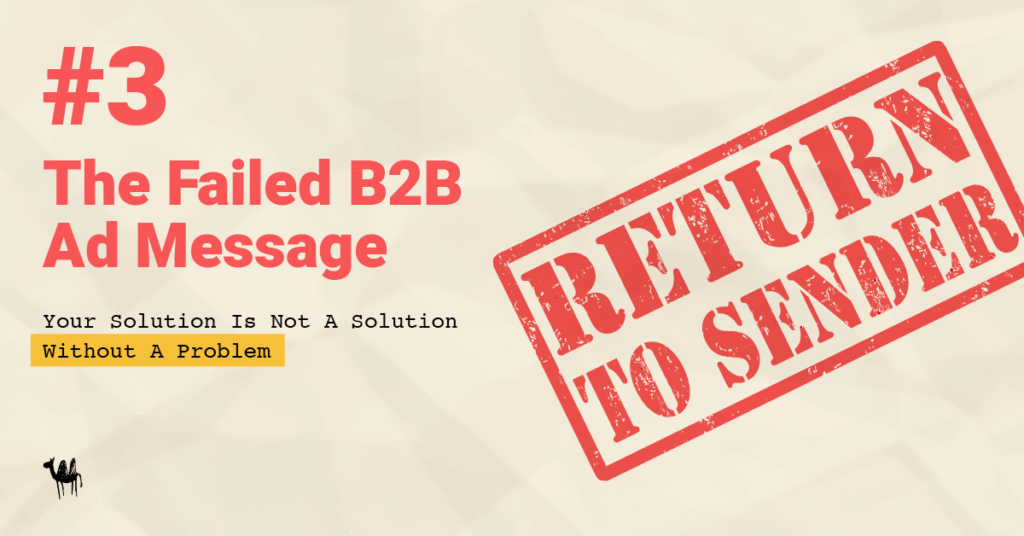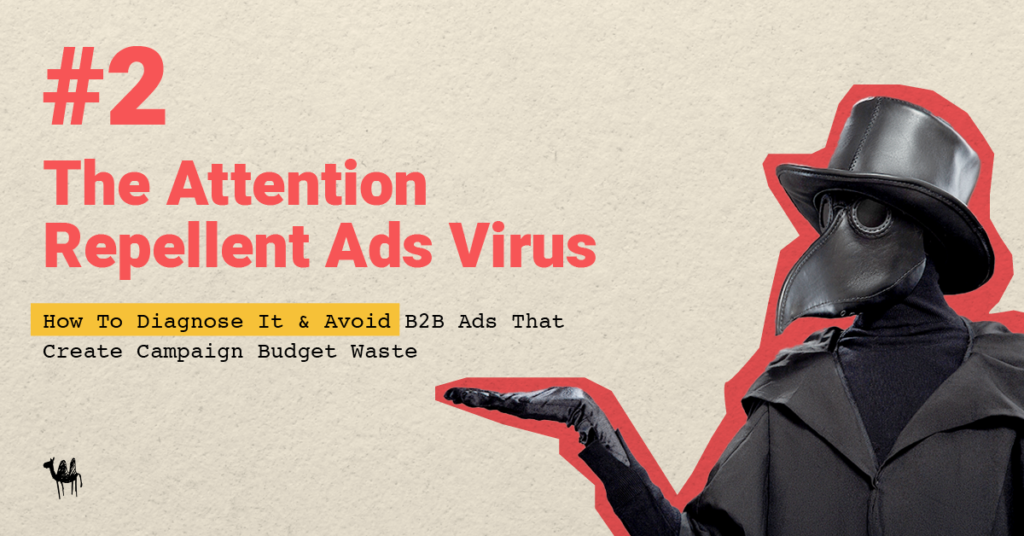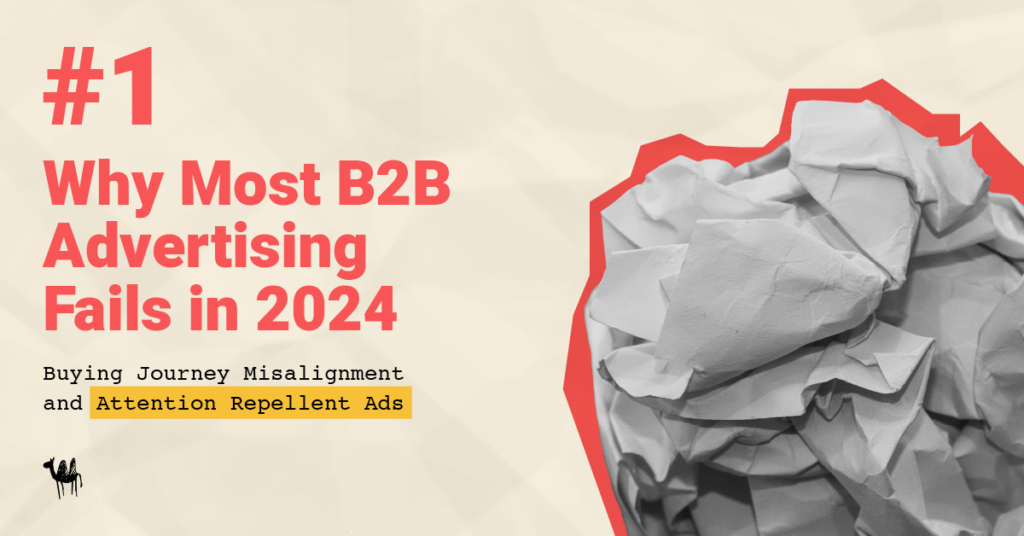If you are in one of the following situations, this article is for you:
- you are planning a Linkedin video advertising campaign
- you are considering what type of Linkedin video ads to use in a Linkedin ad campaign
- you are considering what type of messaging to use in your creatives
- you are a CMO (or directing the strategy of the advertising campaign)
How I analyze these Linkedin Video Ad Examples
In each of the following 12 Linkedin video ads, I’ve analyzed:
- the message and its structure
- how it gets seen by the 5% of in-market buyers and 95% of out-of-market buyers
- the few areas of improvement
Some of the ad analyses are written.
And in others, I analyze it in a video where we watch the ad together.
In all of them, you will feel an intense emotion and enjoy watching them. Imagine that!
Linkedin Video Ads Best Practices: The PESO Formula
Each of these video ads follow what we call the PESO Formula (it rakes in the pesos 😉):
✅ A message about the PROBLEM buyers have (majority of the message)
✅ using EMOTION (usually humor) to exaggerate or show the pains that the problem causes,
✅ ending the video with the brand’s SOLUTION
✅ and the OUTCOME that it produces when the problem is solved.
This formula is based on 4 timeless Linkedin advertising principles that you MUST use for your own ads:
1) The more you show your understanding of the painful problem, the more buyers think you are the only one that can solve it.
2) The more visible the pain and the clearer it is that the problem causes that pain, the higher the perceived value is of your solution.
3) You can’t bore complete strangers into listening, remembering, and sharing about your ad and your brand.
4) All purchases (B2B or B2C) follow this sequence: Problem -> Solution -> Outcome
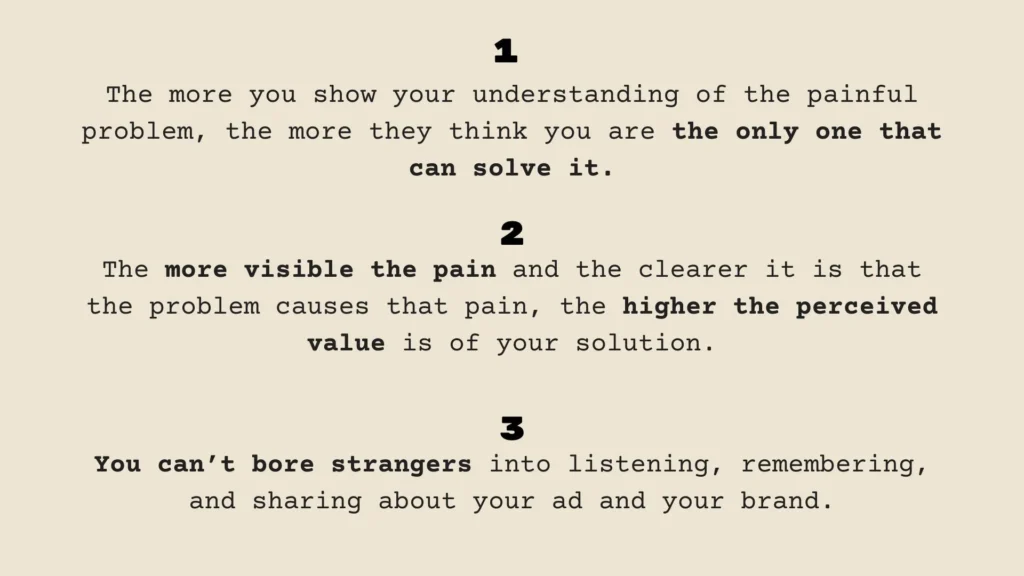
How These Ads Work With The 95:5 Rule
When you use this formula, you’re doing advertising for both the long-term and the short-term.
For both the 95% of buyers that aren’t ready to buy, but also the 5% of buyers that are ready.
- For the 95%: the buyers that aren’t ready to buy will remember you as the go-to solution when they face the problem.
- For the 5%: the buyers that are ready will see you as the brand that understands their problem the best, and as a result will think you understand the solution the best.
If you’re unfamiliar with the 95:5 Rule (research done by the B2B Institute), here’s a quick video before getting into the Linkedin video ad examples.
List of 12 Best Linkedin Video Ads
Disclaimer: there’s a high possibility that your socks will be knocked off and that you will laugh very loud. You will also feel a large amount of disappointment when comparing it to most of the Linkedin video ads you see on your Linkedin feed.
There’s no going back…
Linkedin Video Ad Example 1: Webflow
How this video ad uses the PESO Formula:
P (Problem): Traditional web design platforms where things just simply stop working.
E (Emotion): The ad uses humor, metaphor, and exaggerated situations to make the frustration of web design relatable. They also use quotes like, “Oh I think that’s the problem”. If you’ve ever used web editing tools, that quote is hilarious! This one really gets web designers saying, “That is EXACTLY how it feels.”
S (Solution): Webflow is positioned as the web design tool that just works.
O (Outcome): Webflow leads to an easy and productive web design experience.
Room for improvement: Nada. I’m a huge fan of everything about this.
This video ad makes the 5% in market buyers feel understood and will see Webflow as the solution to the problem causing them pains.
Because this ad is so funny and memorable, it will be easy for the 95% of out-of-market buyers to remember Webflow as the solution to seek out when they evetnually face the problem themselves.
Linkedin Video Ad Example 2: The Client by Teamwork.com
This ad got 400 reposts and 600 comments almost immediately when it was launched.
How? Well…
Have you ever shared an ad with a coworker saying, “Hey Tim, just wanted to share this video with you. It was really boring, so it made me think of you.” Unless Tim is that one coworker that you really hate, then no, that’s not how you share ads or content.
Most Linkedin video ads do not make you laugh. This one does. A lot.
The PESO Formula analysis is included in the video where we watch the ad together.
Video Ad Example 3: Cat Herders by HP
Okay, this one was NOT on Linkedin. But it followed the PESO Formula so well that I had to include it.
How this video ad uses the PESO Formula:
P (Problem): Fragmented information technology systems.
E (Emotion): It uses humor and an extremely relatable metaphor to convey the frustration, chaos, and wasted resources from dealing with fragmented systems.
S (Solution): “We bring together information, ideas, and technologies and make them go where you want.”
O (Outcome): Smoothly managed IT infrastructure, eliminating chaos.
Room for improvement: The problem and solution could be more specific. When the problem you solve is too general, buyers struggle to relate it to their specific situation. And the more general it is the more difficult it will be to be remembered as the solution when they’re ready to buy the solution to their problem.
Linkedin Video Ad Example 4: Slack – We Tried Slack
How this video ad uses the PESO Formula:
P (Problem): Fragmented workspace communication.
E (Emotion): Humor and exaggeration to communicate relatable truths about disorganized messaging, highlighting the pains of inefficiency and chaos.
S (Solution): A unified workspace communication tool.
O (Outcome): Improved team collaboration and streamlined communication through Slack.
Room for improvement: Nothing. Huge fan of everything about this.
We interviewed the Brand Lead at Teamwork.com who created The Client video from above. This ad by Slack was what inspired her to do the same. She remembered this ad 10 years after she saw it!
If you can be the brand remembered as the solution to a specific problem by your entire TAM for 10 years like Slack, the success you’ll experience probably won’t be too far off from Slack’s.
Linkedin Video Ad Example 5: SAS Viya
How this video ad uses the PESO Formula:
P (Problem): Data mismanagement.
E (Emotion): Humor highlighting the frustration and inefficiencies caused by data mismanagement.
S (Solution): Data management and analytics.
O (Outcome): From tons of data to a POV.
Room for improvement:
Normally, I’d say that they could have been a bit more specific about which data is being mismanaged. When it’s too abstract, it’s more difficult to retain, be seen as the obvious solution, and influence buying behavior.
However, the results that SaS Viya got from this Linkedin vidoe ad may prove this criticism to be unfair…
- 3x increase to Lead Gen Form completion rates
- 31% increase in engagement rates
- 28% decrease in Cost per Lead
Like they say, brand advertising is the air cover that supports the ground troops (demand gen, cold outreach, events). Show those results to the exec team next time they shoot down your brand advertising plans.
Linkedin Video Ad Example 6: The Big Meeting by Slack
Your solution is not a solution without a problem. You also can’t bore strangers into listening to you.
Slack understands these 2 principles yet again in their video ad.
How this Linkedin video ad uses the PESO Formula:
P (Problem): Inefficiency and wasted time caused by unproductive, repetitive meetings.
E (Emotion): Humor highlighting the chaos, overwhelm, and frustration of managing countless tasks, meetings, and communications in an inefficient way.
S (Solution): Slack streamlines communication and project management, making it easy to organize work and eliminate the need for unnecessary meetings and excessive coordination.
O (Outcome): From disorganized chaos and meeting overload to a streamlined, manageable workflow where tasks and communication are centralized in Slack.
Linkedin Video Ad Example 7: ClickUp
How this video ad uses the PESO Formula:
P (Problem): The frustration and inefficiency of using physical tools (i.e. whiteboards).
E (Emotion): Humor highlighting the frustration, chaos, and annoyance caused by the use of physical tools and workspaces in high-stakes work environments.
S (Solution): ClickUp offers a digital, flexible alternative.
O (Outcome): From messy, uneditable whiteboard chaos to a streamlined, digital whiteboard solution that enhances productivity and offers unlimited flexibility.
Linkedin Video Ad Example 8: DEEL
How this video ad uses the PESO Formula:
P (Problem): Managing payroll, taxes, expenses, and local regulations for a global workforce is complex, chaotic, and prone to costly mistakes.
E (Emotion): Humor, using the popular “This is fine” meme to depict the frustration and anxiety that HR managers face when managing international teams, making the pain of the problem both memorable and relatable.
S (Solution): Deel provides a compliant and streamlined solution for onboarding, managing, and paying workers across 150 countries.
O (Outcome): From chaotic, stressful HR management across multiple countries to a smooth, compliant, and efficient system where everything is “actually fine.”
Linkedin Video Ad Example 9: Parisian Love by Google
Okay, WE LIED. Sorry. This one actually isn’t a B2B ad. BUT the objection that many executive teams have when doing long-term advertising for the 95% out-of-market is “We’re too boring. We’re a {seemingly boring tech tool}”
So, I decided to show you how a search engine (pretty dang boring if you think about it) can make you FEEL and REMEMBER. The rational stuff comes later in the buying journey. But all good advertising, no matter the service or product the principle stays true: you can’t bore strangers into listening, remembering, and sharing.
How this video ad uses the PESO Formula:
P (Problem): Life is uncertain and we have no one to ask about very specific challenges and situations.
E (Emotion): It evokes feelings of romance, curiosity, and sentimentality through a series of Google searches that tell a story.
S (Solution): Google search gives you answers to any of your questions.
O (Outcome): The user successfully navigates life, thanks to Google.
Linkedin Video Ad Example 10: Winn.AI
How this video ad uses the PESO Formula:
P (Problem): The manual process of updating CRMs.
E (Emotion): Uses humor to exaggerate the frustration and missed opportunities caused by this problem.
S (Solution): A No-Typing CRM.
O (Outcome): Sales teams get their job done.
Note: I love how this ad markets the problem with the legacy category (CRM) and shows how a new category of CRM is needed – No Typing CRM.
Linkedin Video Ad Example 11: Thales
This one also doesn’t have the most ‘problem-focused’ message. But we wanted to show you how even Cybersecurity can get EMOTIONAL.
Oh, and by the way, we produced this video 😎
Linkedin Video Ad Example 12: Teamwork.com
How this video ad uses the PESO Formula:
P (Problem): Clients are difficult to manage, with unpredictable demands, unclear feedback, and constantly changing requirements, leading to inefficiency and lost profitability.
E (Emotion): Humor is used to highlight the frustration and chaos caused by demanding clients, making the problem relatable and engaging for the audience.
S (Solution): Teamwork.com unifies and automates the management of clients.
O (Outcome): From struggling to manage client demands and losing profitability, to efficiently managing and profiting from every client demand.
If you’re looking for more B2B ad examples, here are a couple other pages we’ve created like this:
